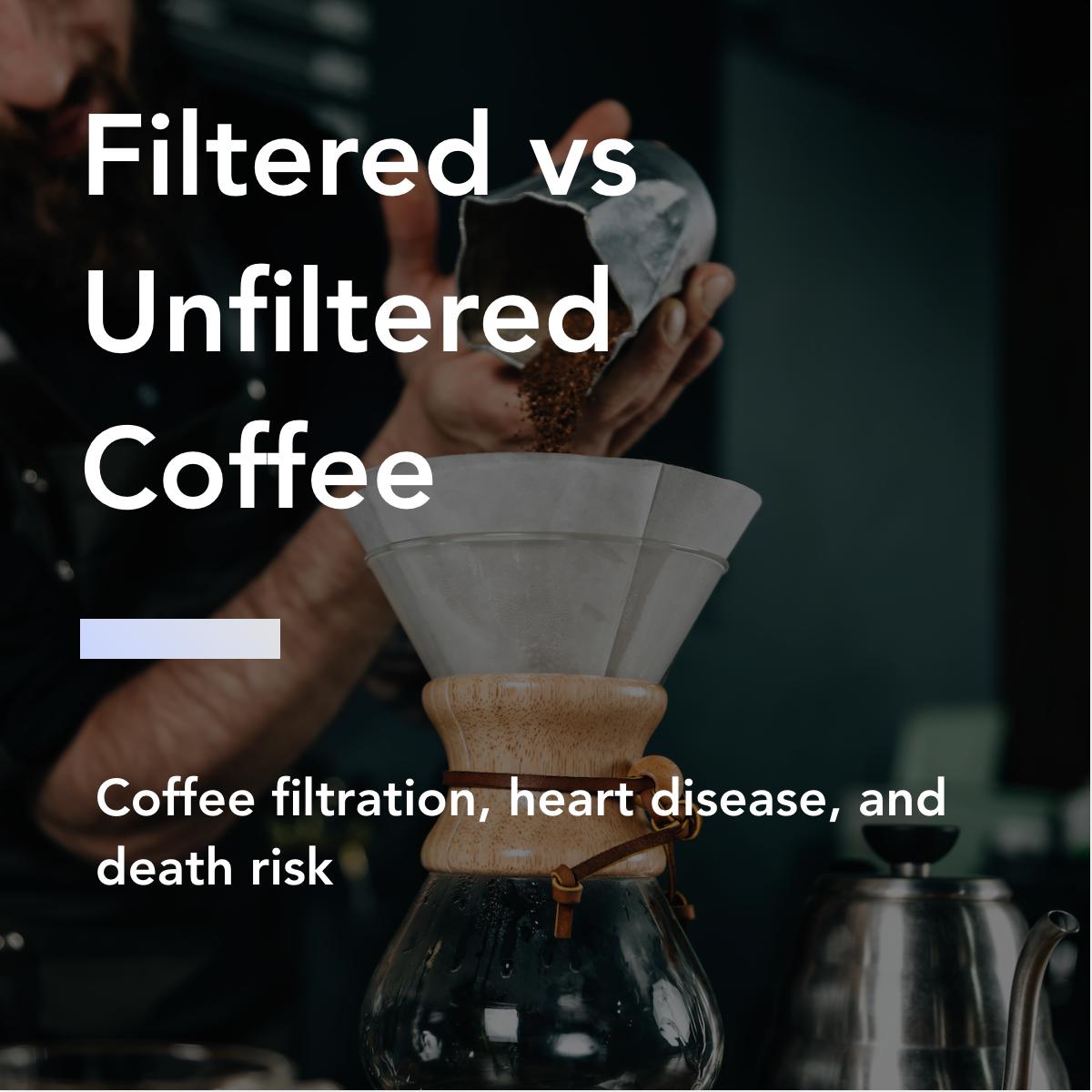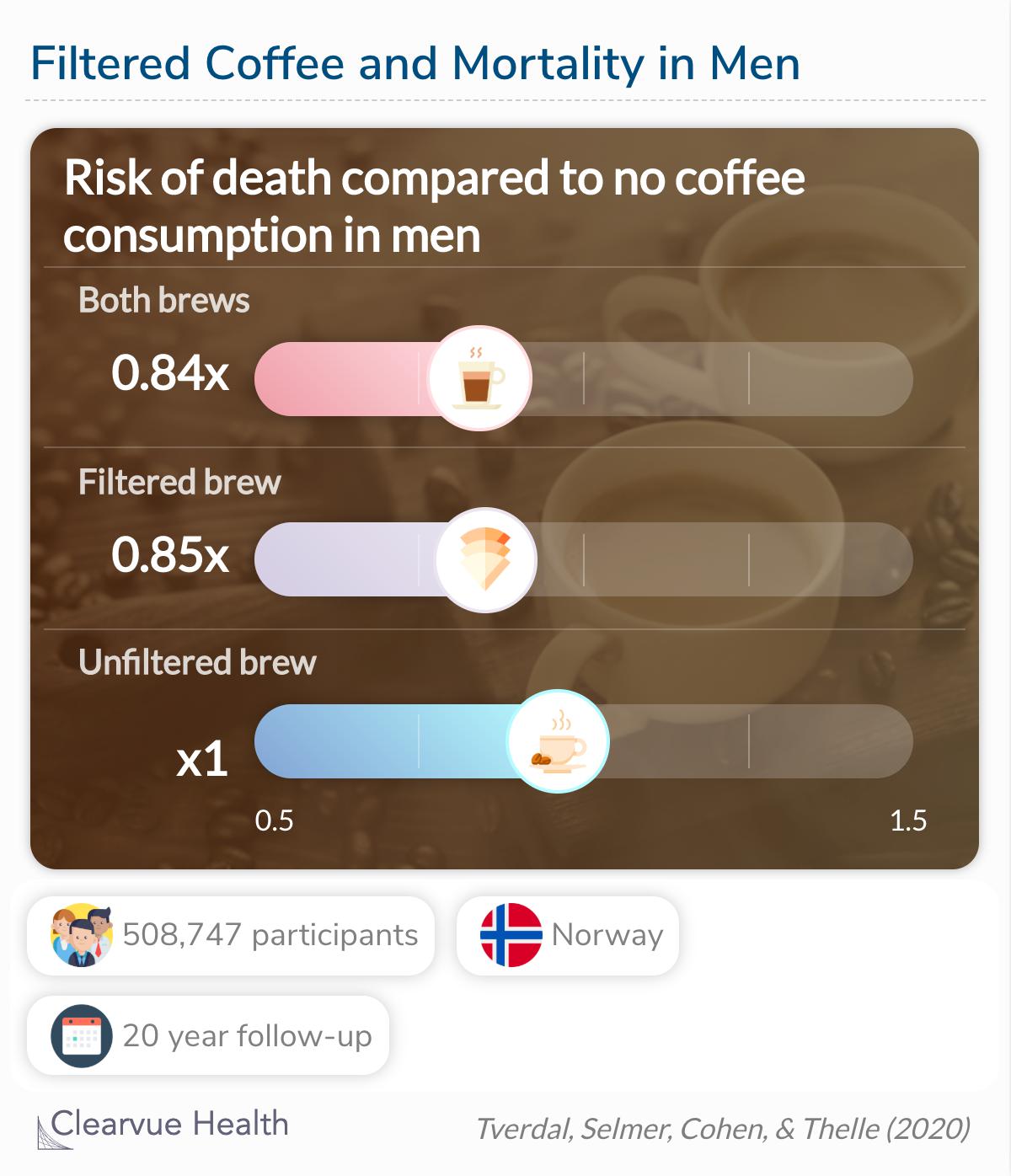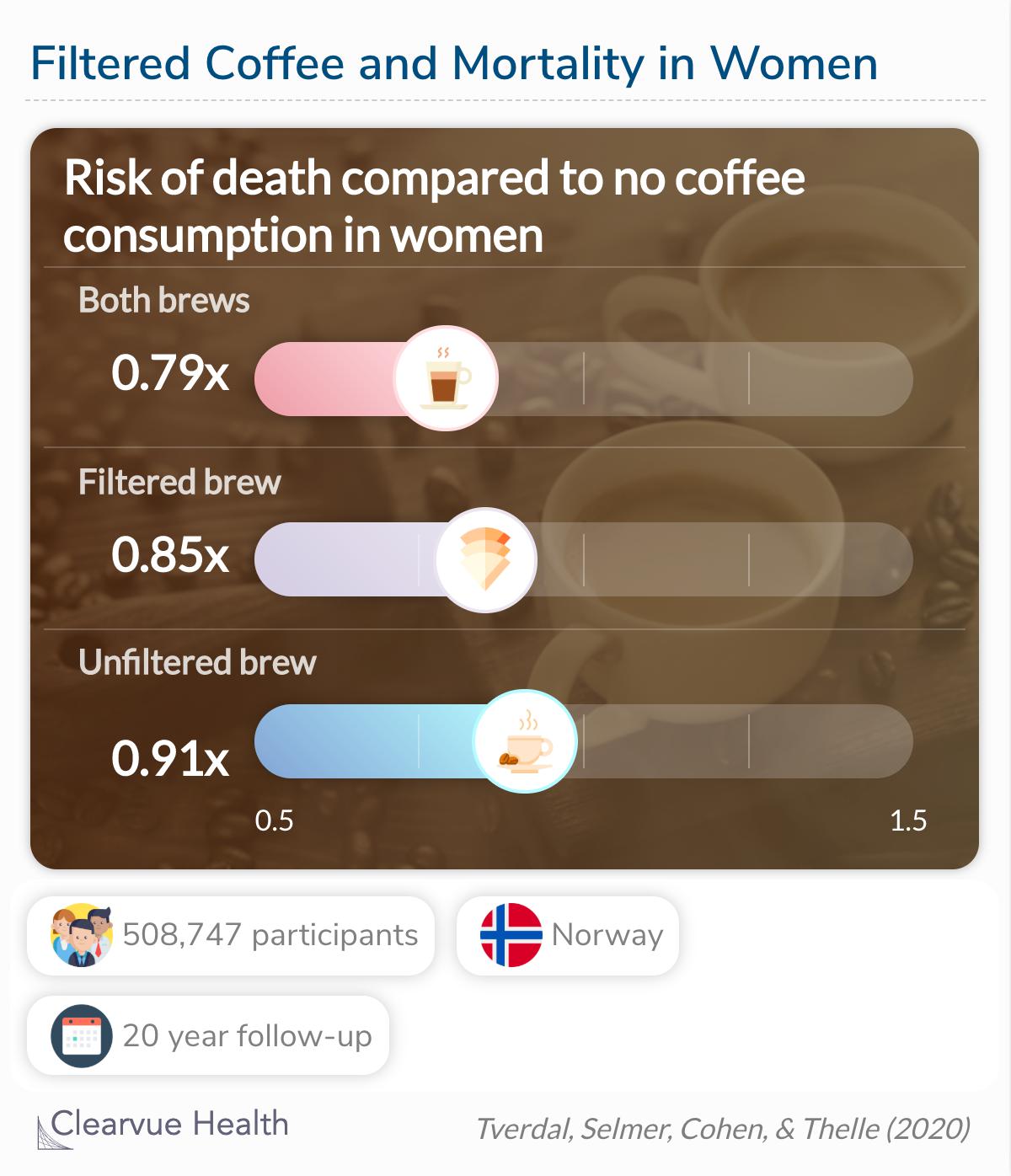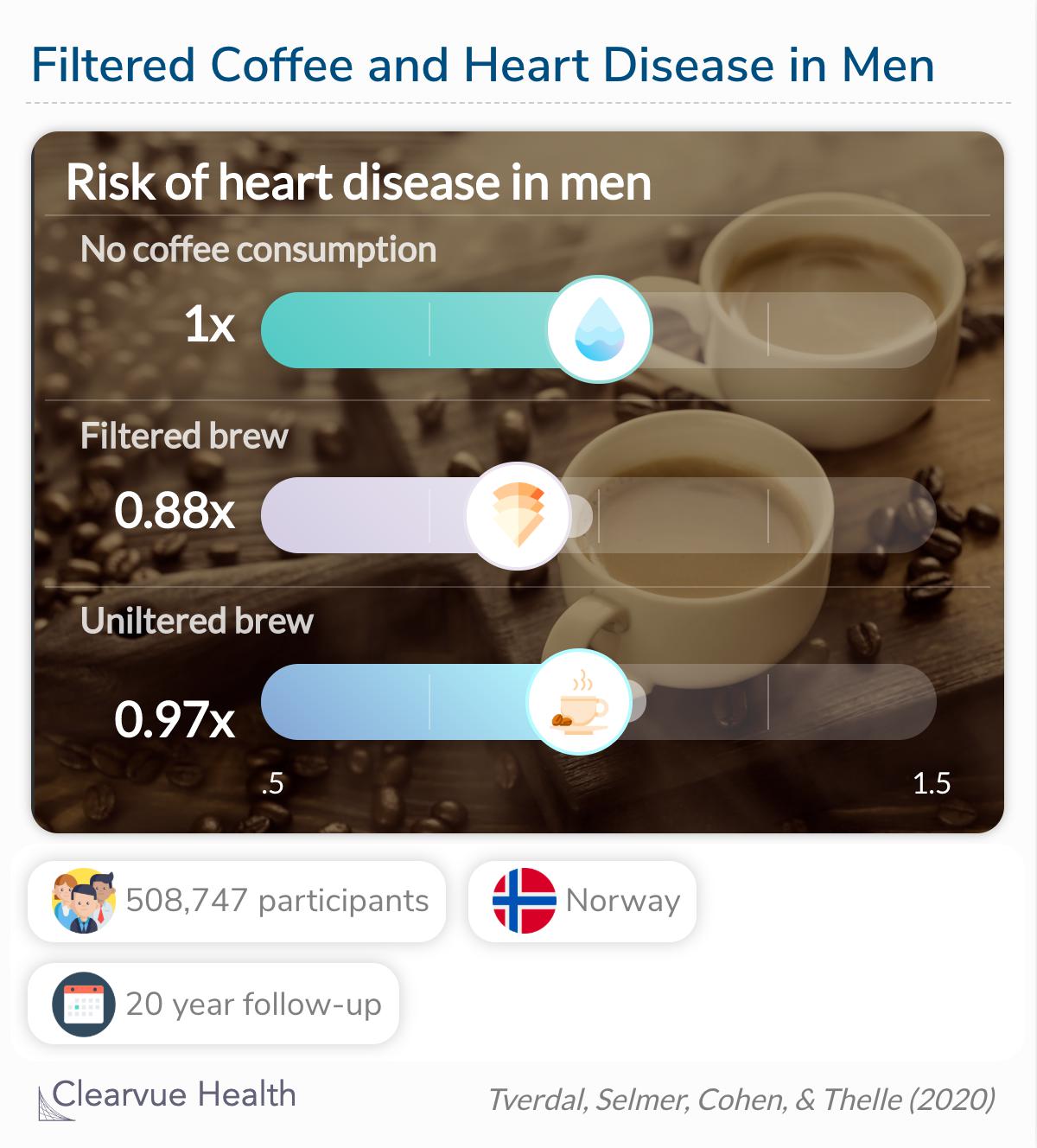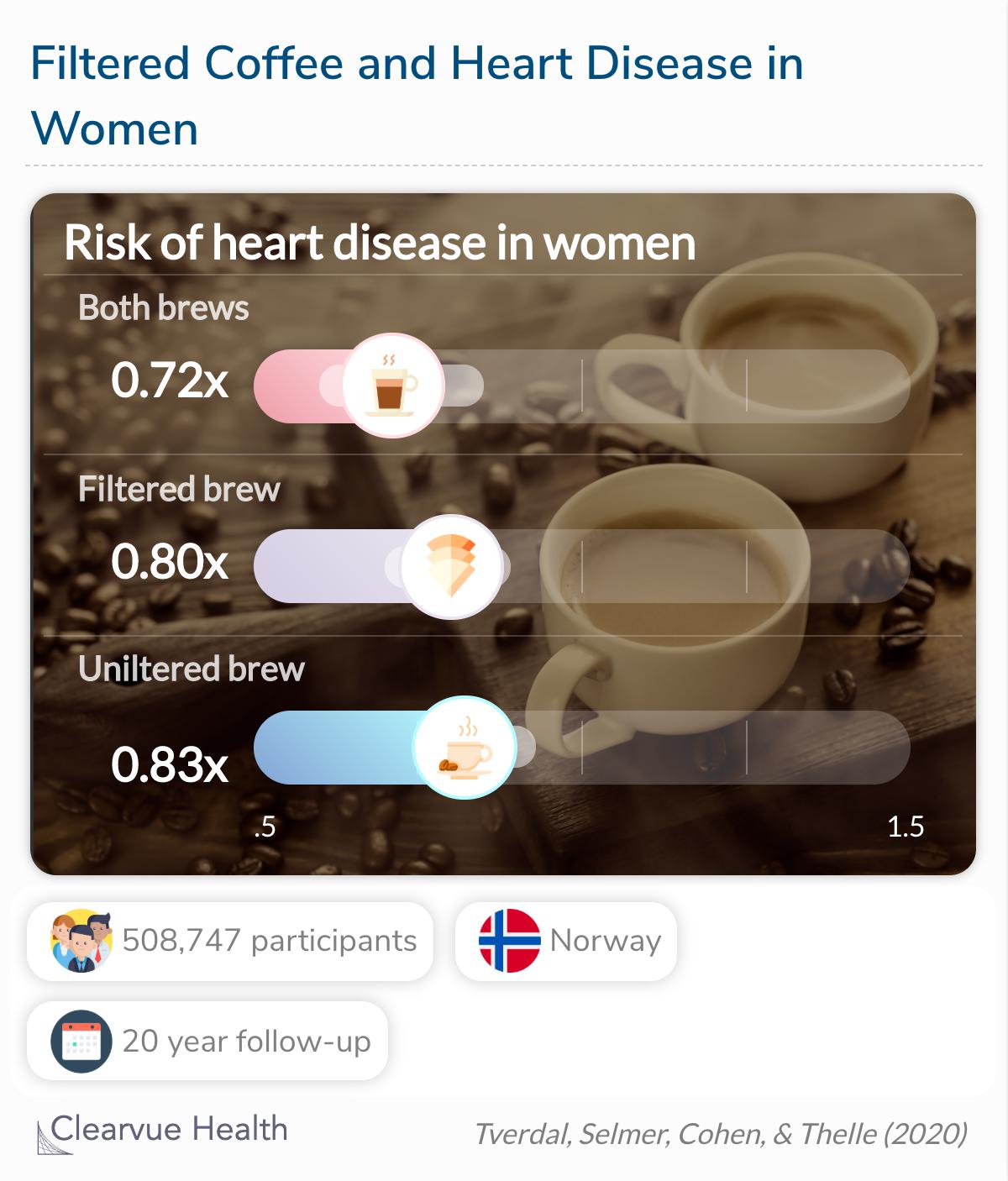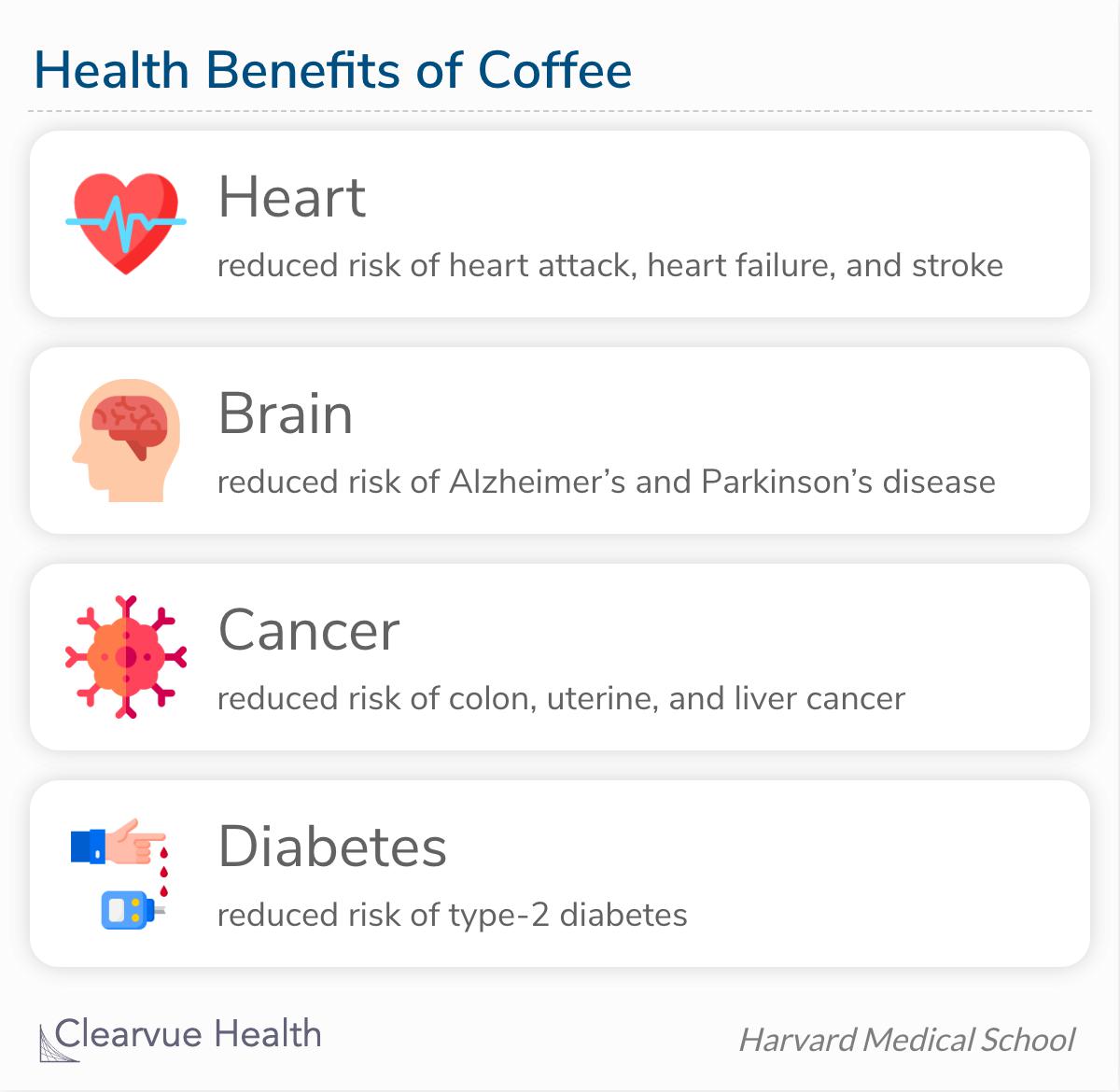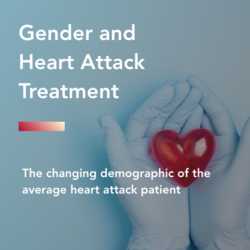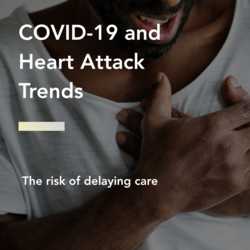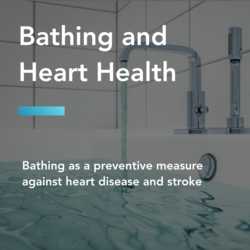filtered vs unfiltered coffee: coffee to reduce heart disease and death risk
Scientists claim that the healthiest way to drink coffee is with minimal cream and sugar and at a warm or cold temperature. The calories from sugar and cream contribute to an increased risk of weight gain, high body fat, type-2 diabetes, heart disease, and cancer. There is also data to show that consuming hot beverages is linked to an increased risk of esophagus cancer.
Another way to measure the health benefits of coffee is by its filtration. In 2020, a study of 508,747 men and women aged 20-79 from Norway was published. In this study, participants reported coffee drinking habits and cardiovascular events for an average of 20 years. The results are fascinating.
Source: Coffee consumption and mortality from cardiovascular diseases and total mortality: Does the brewing method matter?
Risk of mortality
First, the study provided data on coffee filtration and any type of death. In men, they found a lower risk of death among those who preferred filtered or both types of coffee. In women, they found a lower risk of death in all categories.
The multivariate-adjusted hazard ratios (HRs) for any death for men with no coffee consumption as reference were 0.85 (082-0.90) for a filtered brew, 0.84 (0.79-0.89) for both brews, and 0.96 (0.91-1.01) for an unfiltered brew.
Measuring any type of death is complicated and susceptible to many other factors. The researchers tried to consider other factors that contribute to the risk of death such as age, smoking, cholesterol, blood pressure, weight, education, and physical activity. Interestingly, participants who did not drink coffee were the most educated and the least likely to smoke or have high cholesterol. The fact that mortality was generally higher among those who did not drink coffee suggests that those factors can not explain the association.
The multivariate-adjusted hazard ratios (HRs) for any death for women, the corresponding figures were 0.85 (0.81-0.90), 0.79 (0.73-0.85), and 0.91 (0.86-0.96) for filtered, both brews, and unfiltered brew, respectively.
Of note, the data suggest that age could nullify the association in men. Filtered coffee lost its protected effect for men after the age of 60. This applies to any death and cardiovascular-related death.
Risk of heart disease
Previous studies have measured the health effects of coffee based on heart disease risk metrics. Specifically, the literature provides some evidence that unfiltered coffee contains lipid-raising compounds that could increase cholesterol. For this reason, the authors of this study looked specifically at coffee filtration and heart disease risk.
For heart disease, the figures were 0.88 (0.81-0.96) for filtered brews, 0.93 (0.83-1.04) for both brews, and 0.97 (0.89-1.07) for unfiltered brews in men.
In men, data revealed that only filtered coffee could decrease the risk of heart disease. There was no difference between men who drank filtered coffee and men who drank no coffee in terms of their risk of heart disease. Similarly to all mortality, these effects were statistically insignificant after the age of 60 in men.
For heart disease, the figures were 0.80 (0.71-0.89), 0.72 (0.61-0.85), and 0.83 (0.74-0.93) in women.
The risk of heart disease in women was significantly decreased with any type of coffee consumption regardless of filtration. The protected effect of filtered coffee diminished but did not disappear after the age of 60. For an undefined reason, coffee seems to be more protective against mortality and heart disease in women.
Final thoughts
This study suggested that filtered and unfiltered coffee consumption was often associated with a decreased risk of death and heart disease. For a while now, researchers have suggested that the antioxidants in coffee could lead to many health benefits. There is also discussion about the differences in socioeconomic status and health behaviors of those who do and do not drink coffee. Overall, the study found a beneficial relationship between coffee and mortality, particularly after filtration.
Researchers believe that coffee can improve heart and brain health while helping prevent cancer and diabetes.
